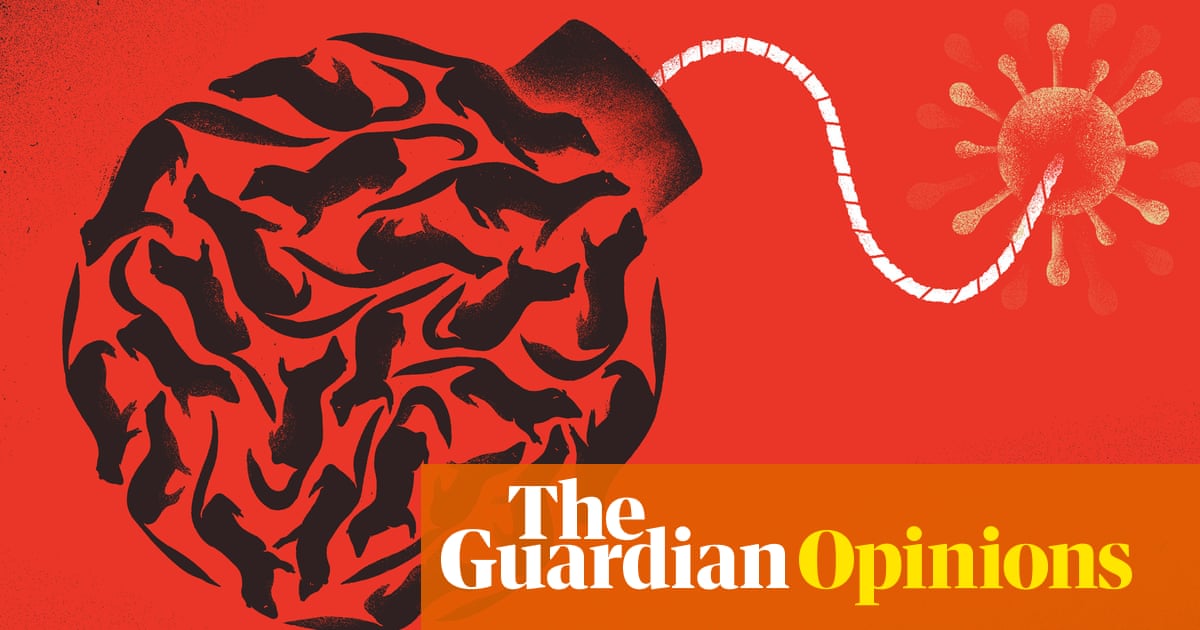
o politician was ever chosen to govern a major democracy without engaging with the symbols of the country they aspired to lead. Almost every leader of the Labour party has tried to do so and the British left’s most hopeful moments – “And now win the peace” in 1945 and appeals to renewal in the 1960s and 1990s – arose when its national story resonated with the challenge of those particular times. But, equally, Labour has often floundered when questions of identity upturn British politics – witness the referendums on Scotland and the EU in the past decade.
Consider this context when judging the ongoing debate about the wisdom, or otherwise, of Labour making “use of the [union] flag” in a move to signal the party’s patriotic intent, as a leaked document advised. In fact, the worst of all worlds may be to end up with front-page newspaper reports about how focus groups want a “patriotism strategy” while other Labour voices suggest that the very thought makes them feel sick.
George Orwell thought leftwing unease about patriotism was a distinctly English tradition, with parts of the left seemingly happy to champion everybody else’s national project except their own. The common objections are that patriotism is meaningless – an irrational attachment to an accident of birth – or dangerously meaningful, bellicose and exclusionary. (Who will be left out of the nation?)
On this latter point, if the idea is that patriotism repels ethnic minority Britons, that feels to me like a foundational misunderstanding of British identity today – and how it has changed during the last decades.
Research for British Future soon to be published finds that pride in being British is shared by more than three-quarters of British ethnic minorities and a similar portion of their white fellow citizens. There are differences of tone and emphasis across generations and places but the story is definitely not one of white pride versus ethnic minority aversion.
“There ain’t no black in the union jack” was an old National Front chant before Paul Gilroy repurposed it as a title for his influential book on race, published in the late 1980s. The cover image of a black veteran, war medals on his chest, signified how selective the NF was in tracing the history it claimed to be proud of. Introducing his second edition early in the new century, Gilroy wrote of how British popular culture had put plenty of black in the union jack across the 1990s. How strange it would be if the left of the Labour party remained among the last to believe that devilish old tune.
The Windrush generation’s story, as captured, for instance, in Andrea Levy’s brilliant Small Island, told of how those whose claim to be British had been inculcated in Kingston’s classrooms and through RAF service arrived in a country that did not know its own history as well as they did. It took generations of activism to resecure the stake in British identity.
Those arguments were still being won when I was growing up. As a half-Asian child, with a father from Gujarat, western India, and a mother from Cork, west Ireland, I had identity questions to think through. I came to realise that with such parents, I could hardly be anything but British. My British story was of how migration, after empire, took an Indian doctor and Irish nurse to the same Surrey hospital.
The former questioning of ethnic minorities’ claims to Britishness made us care more. Michael Ignatieff once wrote that “cosmopolitanism is the privilege of those who can take a secure nation state for granted”. My friend Paul Sathianesan, who left Sri Lanka as a refugee with a single bag of possessions, once told me of how much pride he took, as an elected councillor in the London borough of Newham, conducting citizenship ceremonies for the next generation of new Britons.
Talk to refugees about what becoming British has meant to their families and you may decide that we should mark this summer’s 70th anniversary of the UN refugee convention by entrenching seven decades of refugee protection as a British value, too.
Anxiety about “reclaiming the flag” seemed quite retro to me long before the 2012 Olympics made patriotism more resonant for some who never expected to feel it. Did our Brexit divisions prove that all to be a mirage? I am unconvinced: 27 million of us saw that opening ceremony – it was never the property of only one of the tribes either side of a political choice a few years later. But those divisions have had an impact. British Future found that one-fifth of white British Remain voters now say they are “not proud” to be British – about twice the number of ethnic minority Remainers who say the same. The British identity of ethnic minorities was much less tied up in their EU referendum choice. I would need less than the fingers of one hand to count the black and Asian Britons whom I have heard say they identify as European, yet most ethnic minorities voted Remain.
Our Brexit divisions may now become less extreme. But overlapping British and English, Scottish and Welsh identities can both divide and unite. We have seen fragile reconciliation in Northern Ireland, while Scottish identity became more confident and ethnically inclusive after devolution. Euro 2021 may reinforce the inclusive English identity that Gareth Southgate and Marcus Rashford embody, but this important work in progress must not be confined to sporting summers alone.
I doubt that any general election will be won or lost by the people that put the biggest flags on a conference stage. Substance matters. All who aspire to lead need to find their voices and their story about the state of our nations, the strengths of our society and how we bridge its many divides. An everyday ease with our national symbols – the NHS, Remembrance Sunday and our flags, too – is one essential foundation. Only with that is it possible to secure a hearing for the next generation of arguments about what more needs to change.












